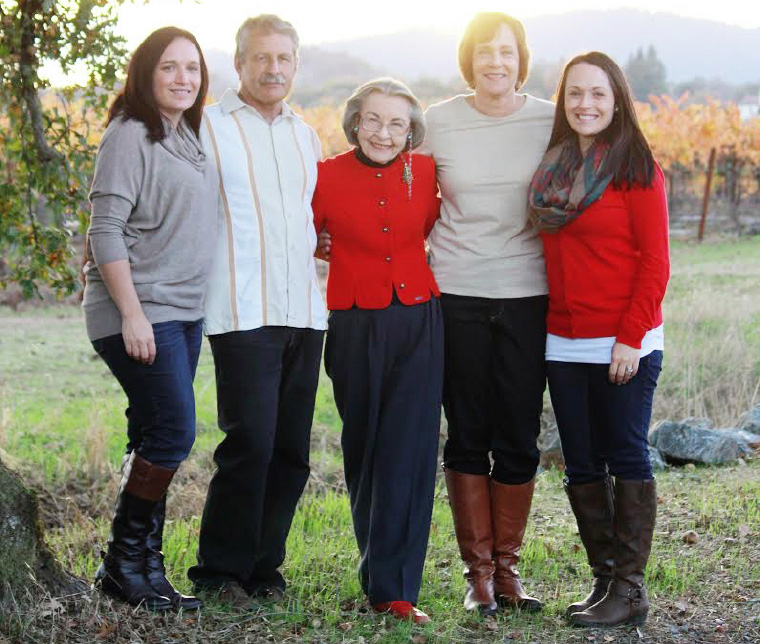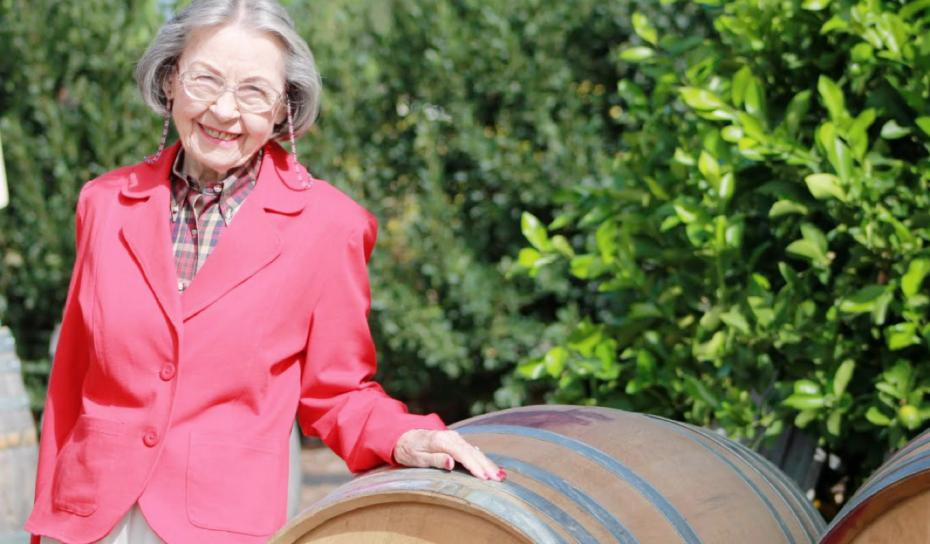Nestled in Sonoma County’s Russian River Valley stand the historical Chardonnay and Pinot Noir grapes of Bacigalupi Vineyards. Growers Charles and Helen Bacigalupi are internationally known after winning the 1976 Paris Tasting.
Not only represents this a Californian success, but also an Italian-American. As Helen writes during our email exchange, Charles’ family carries Italian heritage.
“His family roots start with his great grandfather Natale Bacigalupi, who was born in 1861 in a small town in the province of Genoa, Italy in the region Liguria, called Cicagna. He came to the US in 1875 as a young boy and settled in San Francisco. Natale’s last name was originally Bacigalupo but changed it to the plural spelling (Bacigalupi) once in California.”
Generations passed and both sets of Charles’ grandparents ended up having wineries in Northern California. Even though Charles was a dentist, and Helen a pharmacist, eventually they bought a small farm on Westside Road.
60-years have now gone by since the life-long sweethearts started growing prunes, peaches, cherries and a few acres of grapes. Bacigalupi Vineyards are now growing in three separate areas. Charles passed away in late October 2013 and Helen is taking care of business with the support of family.
Lavinia Pisani: Where does your passion for wine growing come from and how do you feel about it after all these years?
Helen Bacigalupi: Originally Charles and I just wanted to get out of town when we moved to Healdsburg in the 1950’s. He had always had a green thumb and enjoyed growing other things in addition to grapes. There is something about seeing the fruits of your labor that is rewarding. I like to garden still from time to time, it gets me outside. After all these years I still love it. Although I worry that California won’t be centered on agriculture in the future. It’s important to protect farming. It’s our future.
L.P: In what way has the vinery been affected by the drought and what measurements have you taken to alleviate it?
H.B: We are lucky to have a few lakes on the property that my husband dug back in the 1970’s and that is where all our water for the grapes comes from. The last few years the soils have been drier so the wines produced have been much more concentrated from the vines being stressed. This year we are supposed to get a lot of rain so we are hoping it will fill up the groundwater. I know my son John, who manages the ranch, now has been doing a few things to cut back on our water use. We use drip irrigation instead of sprinklers and are slowly moving over some blocks to dry farming. You have to do this slowly though, you can’t do it quick or you will shock the vine, especially in really dry years.

After her husband Charles passed away in 2013, Helen Bacigalupi is taking care of business with the support of family
L.P: How did it make you feel to hear Mike Grgich saying yours were the most beautiful grapes he ever saw in his life? And winning the Paris tasting?
H.B: He came and walked through the vineyard several times before we picked the grapes and he was just ecstatic. It’s the Wente clone that makes the difference. It has the “hens and chicks” larger berries right next to smaller berries in the same cluster. The flavor from these grapes is amazing! I remember when he called to tell me the wine had won I was baking a cake. It was the 4th of July and I thought I should bake a cake for our nations birthday. I didn’t really know what exactly he was talking about when he called but all I thought was, “well isn’t that wonderful!”
L.P: What are the main differences between the French and Californian wine? And Italian?
H.B: I don’t know much about French wines but I do know that Oregon and France are on the same latitude lines so I imagine that making sugar might be tough some years when it is abnormally cooler. I also think there is quite a bit of calcium in the soil there which I am not sure is that ideal for the flavor of the grapes. I imagine that Italy has great soil and weather for growing grapes. After all that is why most of the immigrants from Italy came to Sonoma County as it reminded them of their home. We have a lot of clay and iron in our soil here depending where you are on the ranch. Some of it is harder to grow in then others but we have some very nutrient rich soils.
L.P: Why did you choose to grow Chardonnay and Pinot Noir grapes specifically? And how did you get to Zinfandel?
H.B: Through his dentist practice Charles got to know many of the local grape growers including one in particular; Paul Heck and his family. Paul and his brother Adolf had recently acquired Korbel Champagne Cellars in Guerneville. During his visits and taking the family in for regular check-ups they got to talk about vineyards. Paul advised Charles to plant Pinot Noir and Chardonnay because of where the ranch was located, near the river. Another patient was Bob Sission, who at the time was the farm advisor for UC Davis. He said the morning fog that the river provided would be good for planting Pinot Noir and Chardonnay. Zinfandel came much later when we bought the Frost Ranch in 1993. There were already plantings of old vine Zinfandel there as well as a few other blocks. When we re-planted we grated from the old vines.
L.P: What kind of changes have you noticed in the wine industry from the day you have started until today?
H.B: Well, there is much more competition these days! When we got started there were only a handful of people in the business, mostly Italians; the Foppianos, Seghesios, Gallo, Trentadue and the Pedroncelli’s. Most of them just made bulk wine too. They didn’t even have wine labels back then. You would just go fill up your jug for a few bucks.
L.P: What do you wish for the future of your business?
H.B: Well, I hope that we can just keep doing what we are doing, growing grapes, living on the ranch and making great wines to share with everyone.





























